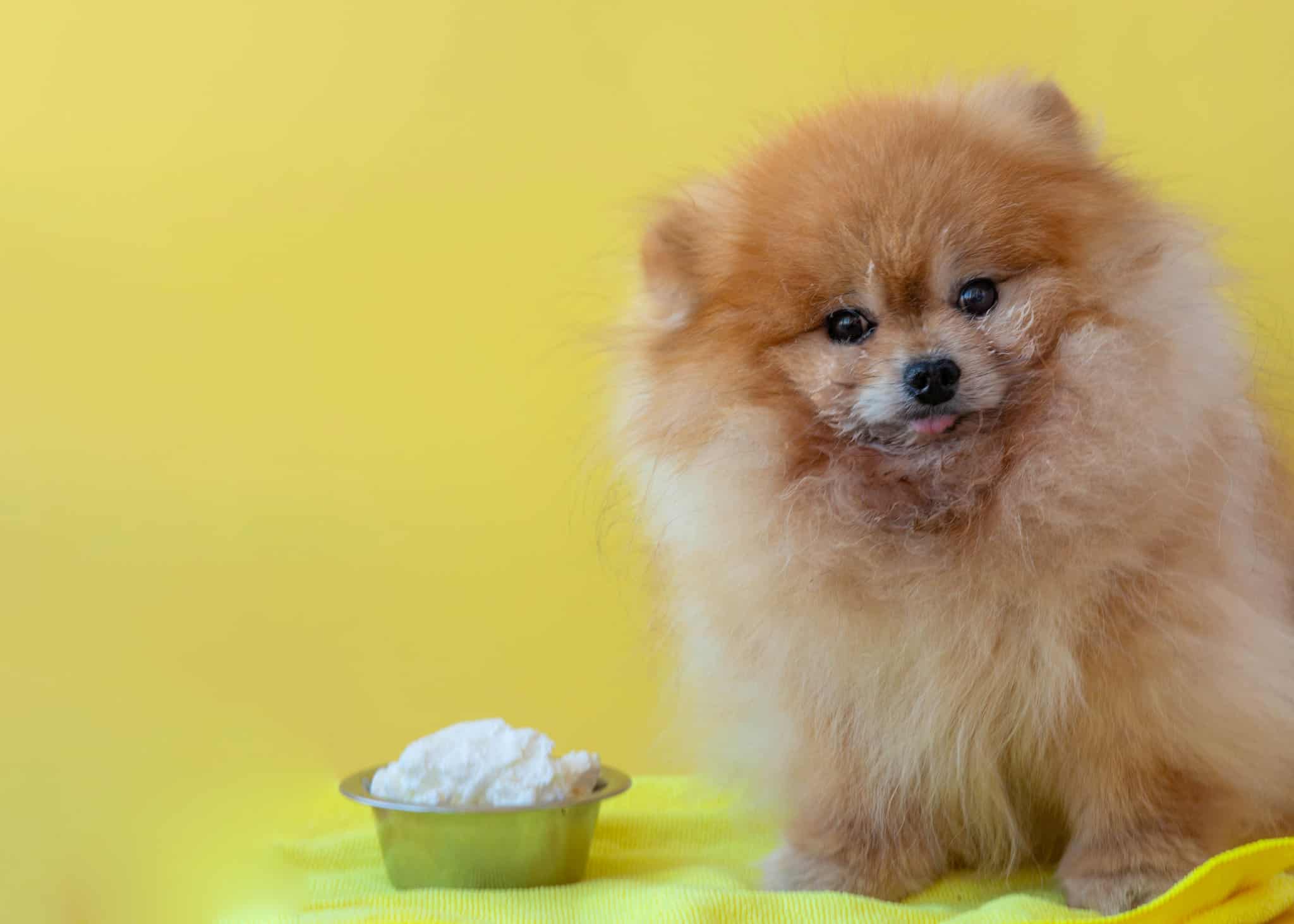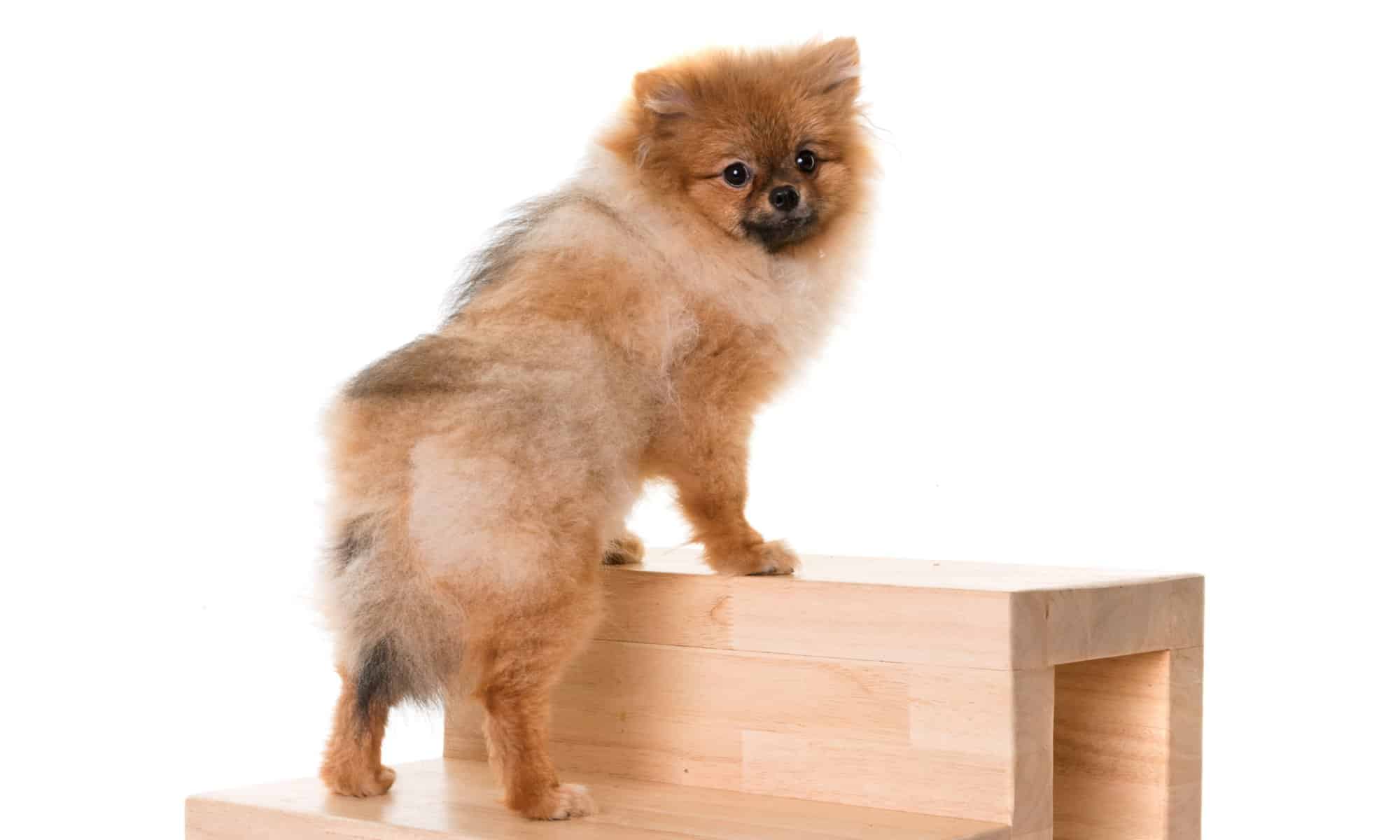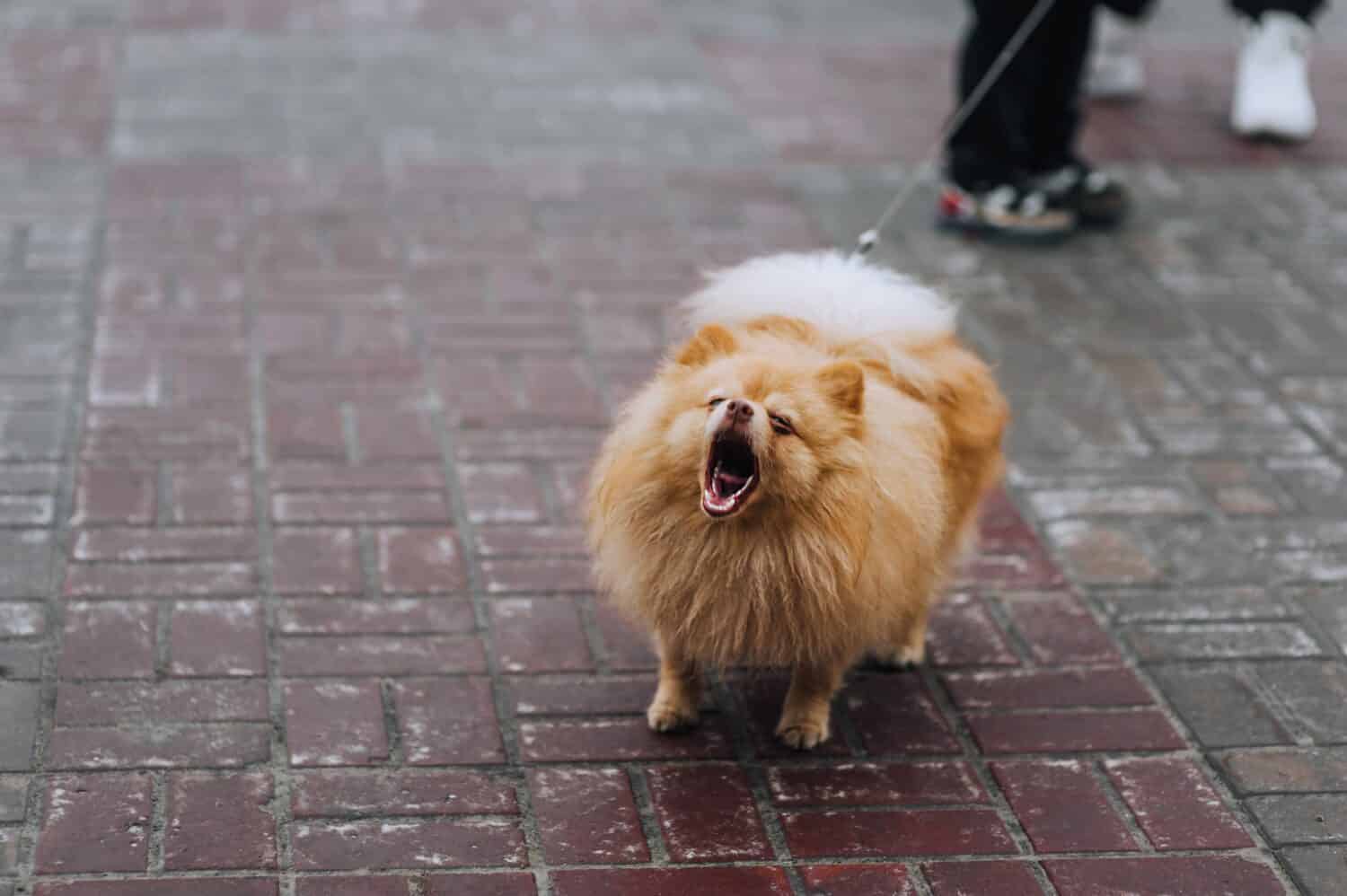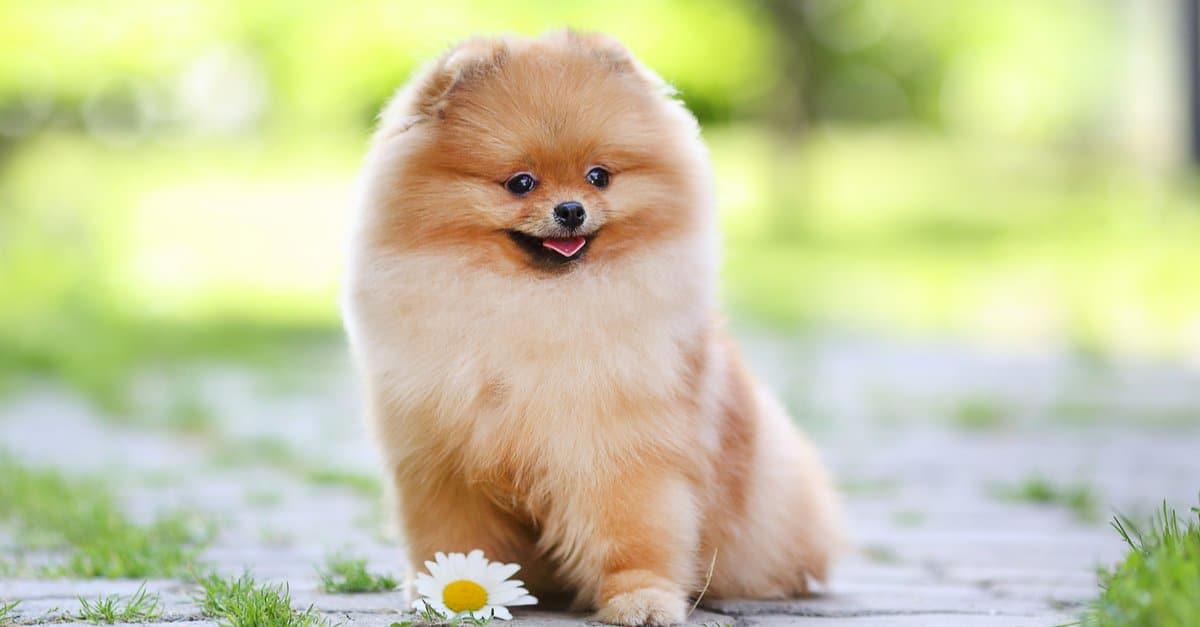The adorable Pomeranian is a joyful companion. Though there’s much that’s good about the breed, there are conditions they are susceptible to. If you’re thinking of owning the breed, these are some common health problems seen in Pomeranians.
About the Pomeranian
With their fluffy red coat and pointy ears, Pomeranians have an inquisitive, fox-like look about them. These pocket-sized dogs usually top out at about 7 lbs., which makes them ideal for apartment living or as a tiny companion who doesn’t need a ton of exercise. They usually are content with short walks and some indoor playtime. Nonetheless, just because they are little, it doesn’t mean they aren’t lively. They are friendly and like to be involved, typically doing well around all ages. However, young children should be taught how to safely behave around such a small dog. Pomeranians have a lifespan of between 12 to 16 years. Though generally a happy and healthy breed, there are common health problems seen in Pomeranians.
1. Hair Loss

The fluffy, puffy coat of a Pomeranian is part of their charm, but the breed is prone to conditions where they lose it.
©iStock.com/nadisja
Pomeranians are susceptible to losing their fur. They can develop Alopecia X, also known as Black Skin Disease. Symptoms include dark pigmented skin in the areas where they have lost their coat. Dogs who develop this skin condition will start to lose fur on their hips and legs, eventually spreading. While there isn’t a cure, treatments may include various ways to balance the dog’s hormones.
2. Eye Problems

Some Pomeranians may have eyelashes that grow too long and irritate their eyes.
Pomeranians can be prone to Distichiasis, a condition where lashes are either too long or develop in a way that pokes into their eye. It can cause the dog discomfort or even damage to the surface of the eye. The condition is treated with various methods that remove the longer lashes.
3. Hypoglycemia

The breed needs to be fed a proper diet to avoid low blood sugar.
©iStock.com/Varvara Druhzinina
This condition commonly affects small dogs and puppies. It can happen when there’s a sudden drop in blood sugar levels. Your dog may suddenly have weakness, shaking and twitching, or even seizures. Hypoglycemia can usually be resolved by feeding a proper diet, but it’s also important to check with your veterinarian to make sure it’s not symptoms of something else.
4. Luxating Patella

Luxating Patella is common in smaller dogs, like the Pomeranian.
©cynoclub/Shutterstock.com
This condition, where the kneecap slips out of alignment, can lead to pain and arthritis. Over-exercising your dog can lead to its development, though genetics is also a cause. Luxating Patella can be corrected with surgery to help your Pomeranian live a more comfortable life.
5. Collapsed Trachea

Walk your Pomeranian in a halter to avoid injury to their delicate necks.
©Shchus/Shutterstock.com
This condition is the most common health problem for Pomeranians. A few things can cause a collapsed trachea in this breed. Poor breeding or even pulling too hard may cause cartilage in the windpipe to bend and weaken. This can lead to wheezing, coughing, and trouble breathing, which are the first signs of the condition. Decaying and rotting teeth may also lead to a collapsed trachea. To help prevent the condition, walk your Pomeranian in a harness around the body, not a neck collar. And make sure they have proper dental care.
6. Reverse Sneezing

Change the way your Pomeranian eats to help with reverse sneezing.
©leungchopan/Shutterstock.com
Pomeranians can experience “paroxysmal respiration”, another name for reverse sneezing. It happens when a dog is overexcited, pulling too hard on their collar, or eating and drinking too fast. Though it sounds like your dog is choking, it’s not especially dangerous. If they start exhibiting the condition, help your Pomeranian stay calm. Additionally, try slow feeder bowls and avoid strongly-scented items in your home.
7. Heart Murmur

Keep your Pomeranian’s heart healthy with regular exercise and a balanced diet.
©Dulova Olga/Shutterstock.com
This is one of the most common heart issues that Pomeranians experience. It’s caused by any type of abnormality of the heart. The condition is easily managed with medications, but it’s also a good idea to make sure your Pomeranian eats a healthful diet and gets an appropriate amount of exercise.
Summary of Common Health Problems Seen in Pomeranians
| 1. | Hair Loss |
| 2. | Eye Problems |
| 3. | Hypoglycemia |
| 4. | Luxating Patella |
| 5. | Collapsed Trachea |
| 6. | Reverse Sneezing |
| 7. | Heart Murmur |
The photo featured at the top of this post is © Eva Sustar/Shutterstock.com
Ready to discover the top 10 cutest dog breeds in the entire world?
How about the fastest dogs, the largest dogs and those that are -- quite frankly -- just the kindest dogs on the planet? Each day, AZ Animals sends out lists just like this to our thousands of email subscribers. And the best part? It's FREE. Join today by entering your email below.
Thank you for reading! Have some feedback for us? Contact the AZ Animals editorial team.







